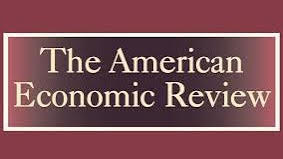
A recent study conducted by Andrés Barrios Fernández, a scholar at the Universidad de los Andes, in collaboration with Yale University professors Christopher Neilson and Seth Zimmerman, provides new insights into the dynamics of intergenerational mobility in Chile. Spanning five decades of educational trajectories, the research examines how parents’ educational backgrounds significantly influence their children’s educational opportunities.
The study begins by exploring correlations between parents’ and children’s performance on university admission tests and the types of schools they attend. The authors find that parental social status offers considerable advantages in both areas.
“Children’s expected university admission test scores tend to increase with the scores their parents achieved. However, students whose parents attended elite private schools enjoy additional advantages,” explains Professor Barrios. “For example, if your mother attended a public or subsidized high school and scored in the top 20% of her generation, we would expect you to score in the top 25% of yours. But if your mother attended an elite private school and achieved the same score, we would expect you to score in the top 15% of your generation. This difference is significant, especially when considering its impact on access to selective university programs.
The research also reveals notable differences in the types of schools children attend based on their parents’ social background.
“The likelihood of a child attending an elite private school increases with their parents’ university admission test scores. However, there are important disparities across social groups. For example, a mother who graduated from a public or subsidized high school and scored in the top 5% of her generation has a 10% chance of sending her children to an elite private school. In contrast, mothers from elite private schools with similar scores have over a 65% chance of doing the same,” explains Professor Barrios.
This study offers valuable evidence on how educational inequality is perpetuated across generations, highlighting the challenges faced by students from less privileged backgrounds in accessing top-tier educational opportunities.
The study also shows that parents who did not attend elite high schools experience a 20% increase in the likelihood of sending their children to elite schools and a 7% increase in the probability of their children attending elite universities. “These changes impact more than just educational trajectories,” explains Professor Barrios. “These children attend schools, live near, and form friendships with peers from higher social statuses. Our results demonstrate that elite universities have the potential to enhance social mobility.”
To gain a more comprehensive understanding of the role of elite universities in social mobility, the authors also conduct some simple calculations using a vector autoregressive (VAR) model, revealing that over the period they study, elite universities strengthened the relationship between academic performance and access to elite social capital, but they also made the elite more persistent across generations. “This is partly because students from middle- and lower-income backgrounds are underrepresented in the most selective programs” notes Professor Barrios. The study concludes by conducting some simulations that show that changes in admissions policies, that expand access of underrepresented groups to highly selective universities, could enhance the role these institutions play in improving social mobility.
This analysis offers a critical perspective on how disparities in parental education in Chile can perpetuate differences in future educational and labor market opportunities.